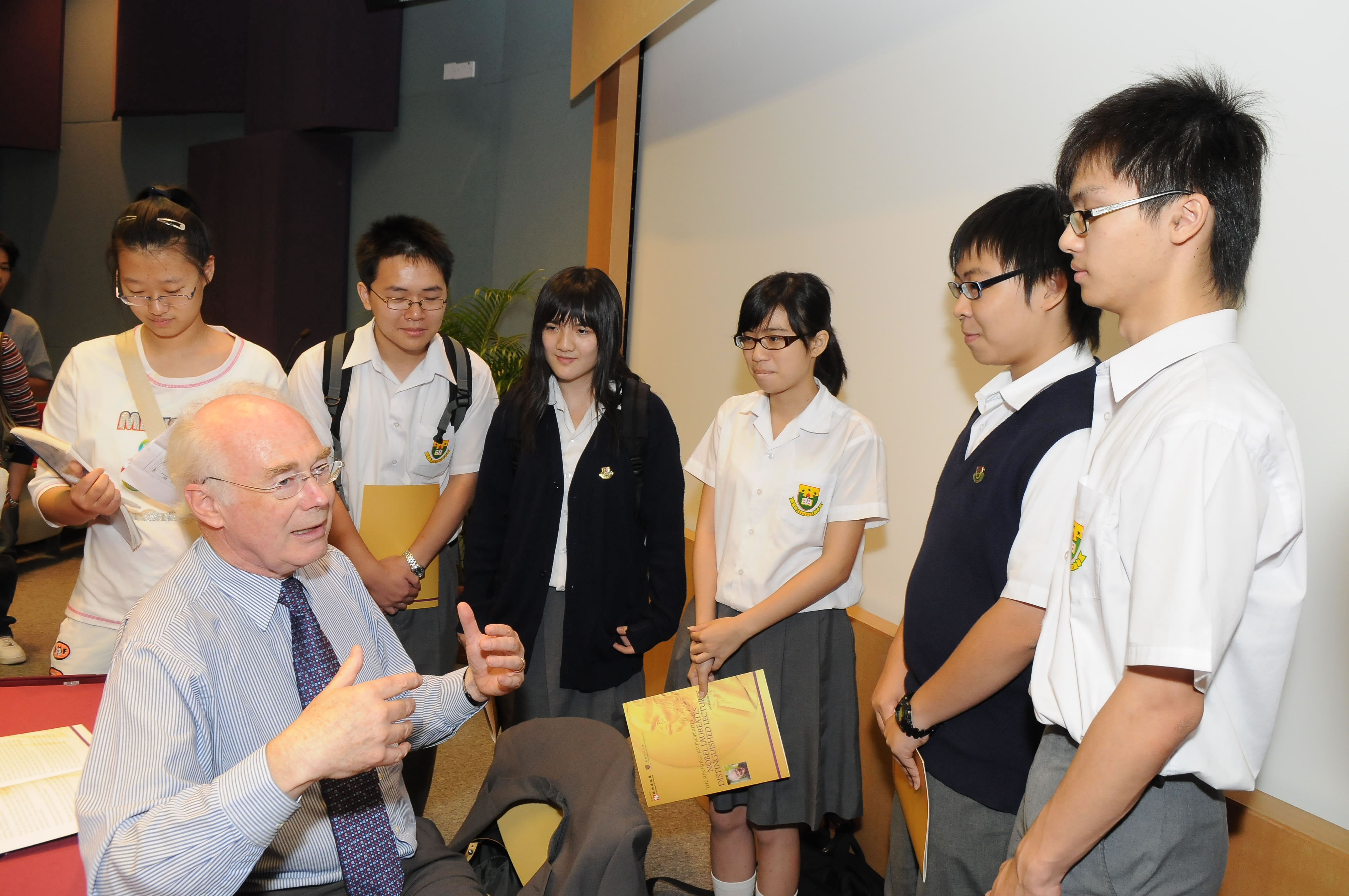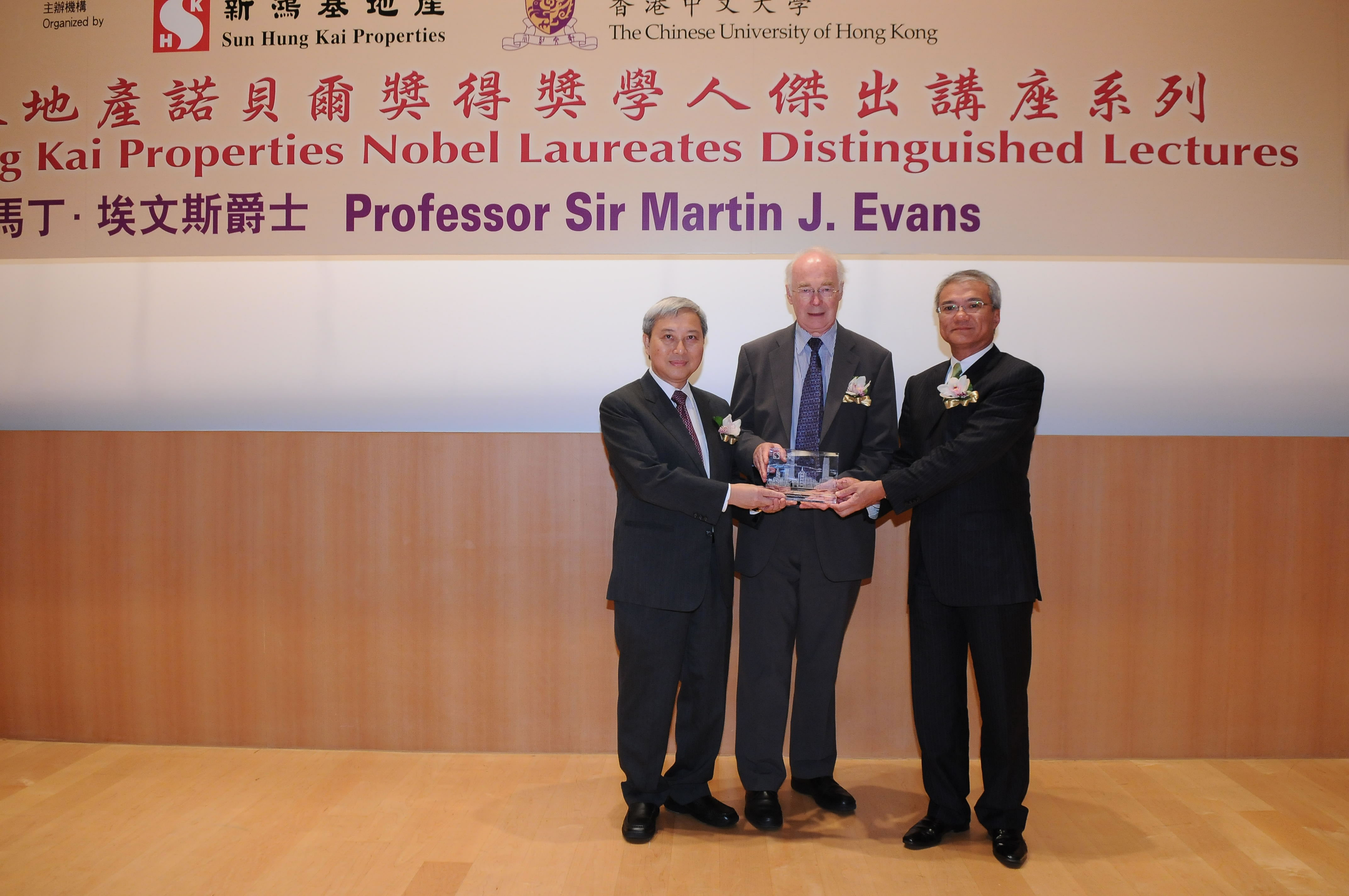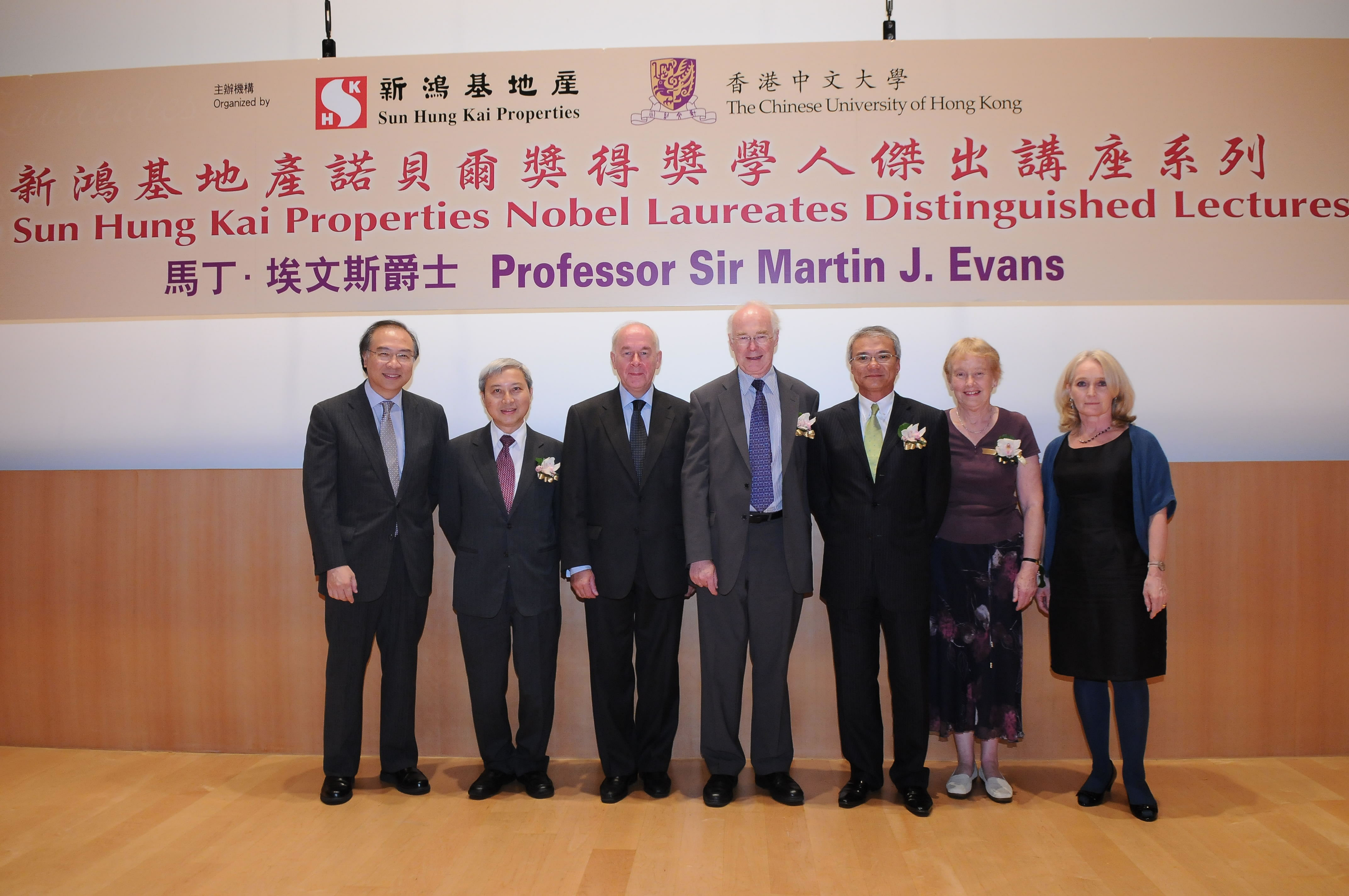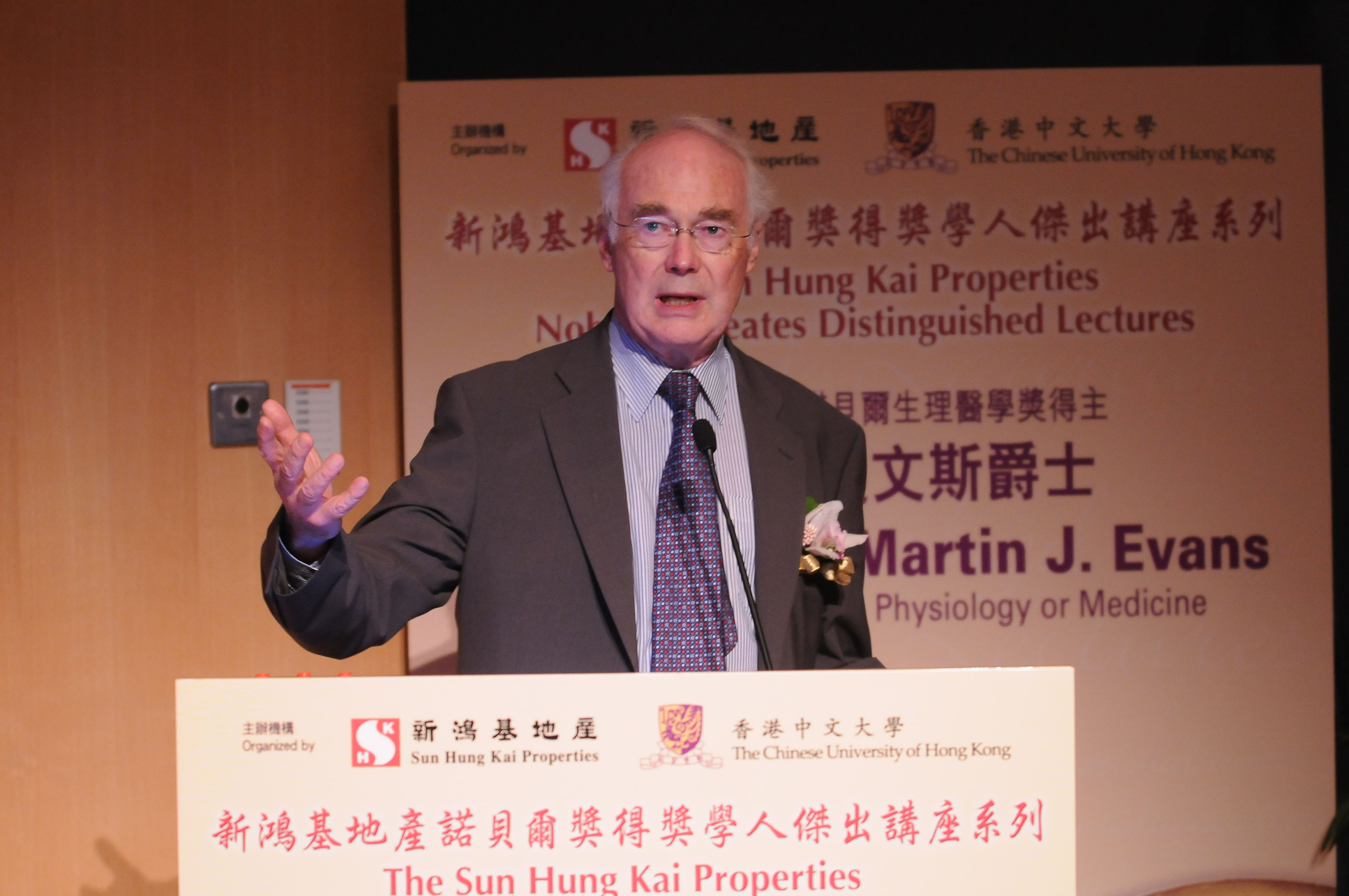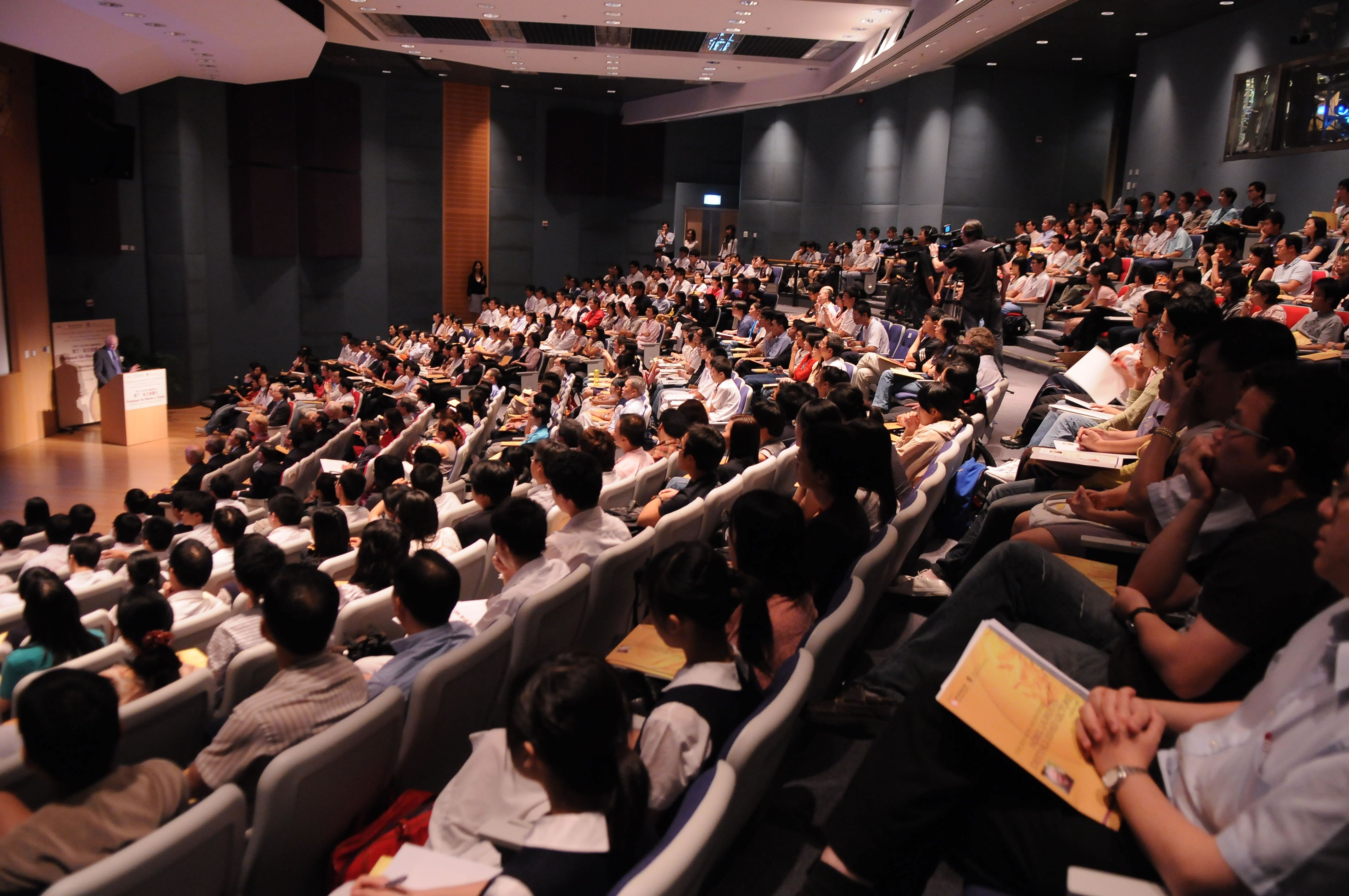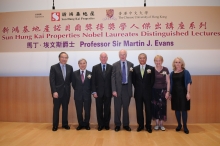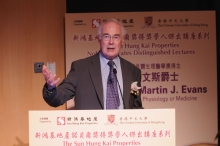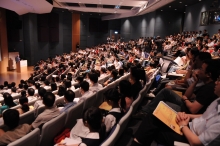News Centre
SHKP and CUHK Present Nobel Laureate Lecture Eminent Professor in Physiology or Medicine Speaks on the Origins of ES Cells
Sun Hung Kai Properties (SHKP) and The Chinese University of Hong Kong (CUHK) presented again the widely acclaimed Sun Hung Kai Properties Nobel Laureates Distinguished Lectures today (10 October), featuring Professor Sir Martin J. Evans, 2007 Nobel laureate in Physiology or Medicine on “The Origins of ES Cells”. During the lecture, Sir Martin shared his scholarship with over 500 CUHK staff, students, alumni and members of the medical and commercial sectors, as well as the general public.
Sir Martin also met with more than a hundred tertiary and secondary school students to share his experiences about life and learning before the lecture.
SHKP Executive Director Mike Wong said, “SHKP encourages education and life-long learning. We are very pleased to present the Nobel Laureates Distinguished Lectures in collaboration with The Chinese University of Hong Kong to provide Hong Kong people a chance to benefit from the insight of world-class scholars. I believe it will help us lift horizons and bring us closer to the world trends, so as to equip for challenges.”
CUHK Acting Vice-Chancellor Professor Liu Pak-wai thanked SHKP and its Vice Chairman and Managing Director Dr Raymond Kwok for their unwavering support over the last four years. He added, “Professor Sir Martin is undoubtedly a scientist of global influence, and the medical benefits of his ground-breaking discoveries on embryonic stem cells are enormous. He has increased our understanding of human diseases, and has offered hope to millions of sufferers around the world.”
During the lecture, Sir Martin presented the history of embryonic stem cells (ES cells) discovery and presented evidence for the homology of ES cells with a normal compartment of the early mouse embryo. ES cells may be maintained in tissue culture virtually indefinitely and retain their ability to differentiate into all other cell types. This differentiation may occur in vitro as well as in vivo in the context of a normal embryo. In the mouse the resulting chimaerism provides a vehicle for transfer of novel experimental genetic changes to the whole organism and provides a platform for experimental mammalian genetics. Embryonic differentiation is experimentally accessible in culture and moreover ES cells provide a potential source of other tissue specific progenitor cells which may be useful for regenerative medicine.
For greater social benefits and better public awareness of the six Nobel Prize categories: Physics, Chemistry, Physiology or Medicine, Literature, Peace and Economic Sciences, the lecture was broadcast live to local universities, and Hong Kong Science and Technology Parks. It was also available on the Hong Kong Education City web site for online viewing by secondary school students and teachers. There was also a live feed to Peking, Fudan, Shanghai Jiao Tong, Tsinghua, Zhejiang, Nanjing and Sun Yat-sen Universities on the mainland to promote academic exchange.
After graduating from Cambridge in 1963 Sir Martin decided on a career studying the genetic control of vertebrate development and undertook research for his PhD at University College London in the department of Anatomy and Embryology. Since pioneering various fundamental developments which created new routes to experimental mammalian genetics and hence functional genomics, Sir Martin has been exploiting them using gene knockout and gene trap methods both for novel discovery and to create animal modes of human disease. From his laboratory came the first demonstration of gene therapy to cure the deficit in Cystic Fibrosis in the whole animal and recently, from a mutated mouse model, insights into the breast cancer gene BRCA2 function.
Sir Martin has published 124 scientific papers. He is a Fellow of the Royal Society and a founder Fellow of the Academy of Medical Sciences. In 1993 he was awarded the Walter Cottman Fellowship and the William Bate Hardy Prizes. He was awarded the Albert Lasker Award for Basic Medical Research in 2001. In 2002 he was also awarded an honorary doctorate from Mount Sinai School of Medicine in New York, regarded as one of the world’s foremost centres for medical and scientific training.
The Sun Hung Kai Properties Nobel Laureates Distinguished Lectures were inaugurated in 2004 in conjunction with The Chinese University of Hong Kong. The series allows various Nobel laureates to speak to a broad cross-section of the community, to promote the discovery and the dissemination of knowledge, professional and entrepreneurial expertise and contributions to humanity. After this, the thirteenth installment of the series, 20 Nobel laureates or renowned scholars had lectured in Hong Kong.
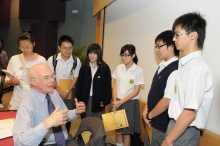
Sir Martin meets with more than a hundred tertiary and secondary school students to share his experiences
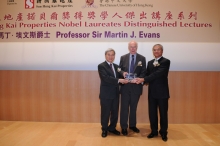
SHKP Executive Director Mike Wong (right) and CUHK Acting Vice-Chancellor Professor Liu Pak-wai present a souvenir to Sir Martin
